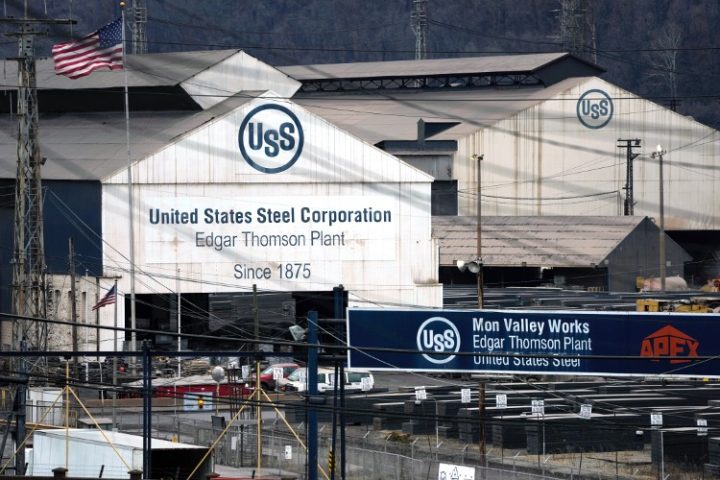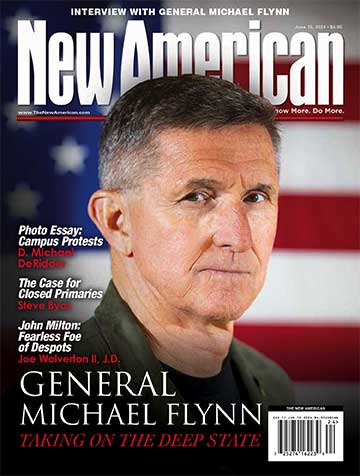
The United States is spiraling toward a historic acquisition that will have far-reaching consequences for American industry and sovereignty — and the nation’s political establishment isn’t even batting an eye.
The Japanese firm Nippon Steel has purchased U.S. Steel — the legendary company formed by financial titan J.P. Morgan in 1901 upon a merger between three companies, including Andrew Carnegie’s Carnegie Steel — for $14.9 billion. While the deal has inspired some outcry from rank-and-file lawmakers on Capitol Hill, the nation’s top voices have given only cursory attention to the matter if at all.
As Politico notes, Senate Majority Leader Chuck Schumer (D-N.Y.) said he hasn’t reviewed the monumental sale. Minority Leader Mitch McConnell (R-Ky.), Speaker Mike Johnson (R-La.), and House Democratic Leader Hakeem Jeffries (N.Y.) have not made any public comments about the deal.
Joe Biden has not personally spoken on the matter, although his national economic advisor, Lael Brainard, suggested that the administration will conduct a probe of the purchase, saying that “the purchase of this iconic American-owned company by a foreign entity — even one from a close ally — appears to deserve serious scrutiny in terms of its potential impact on national security and supply chain reliability.”
This statement came after the White House spent several days dodging questions about the issue. And even Donald Trump has yet to comment on the acquisition, despite his protectionist positions.
After the sale was announced on Monday, U.S. Steel’s stock price went up 26 percent. The $14.2 billion offer from Nippon is twice what the firm was offered by fellow American company Cleveland Cliffs back in August.
The deal has gotten in the crosshairs of organized labor. United Steelworkers, a union representing over 850,000 American workers, blasted Nippon and U.S. Steel for reaching an agreement without letting them know a sale was in the works. Calling the purchase “greedy,” USW President David McCall vowed to “exercise the full measure of our agreements to ensure that whatever happens next with U.S. Steel, we protect the good, family-sustaining jobs we bargained.”
While the union got behind Biden in 2020, it has not yet endorsed anyone for the 2024 presidential election. USW’s support could play a pivotal role in toss-up states such as Michigan and Pennsylvania. Both the Biden and Trump campaigns are well aware of this fact, and the two candidates have each been making overtures to blue-collar workers.
Notably, rank-and-file lawmakers of both parties have spoken out against acquisition of U.S. Steel, although the party leaders have done little to assuage these concerns.
On the Democrat side, Sherrod Brown (D-Ohio), who chairs the Senate Banking Committee, wrote a letter to Biden on Wednesday in which he called for a review of the sale. Meanwhile, Democratic Senators John Fetterman and Bob Casey and Representative Chris Deluzio — all from Pennsylvania — sent a letter on Tuesday to Treasury Secretary Janey Yellen, who serves as head of the Committee on Foreign Investment in the United States (CFIUS), a body charged with reviewing foreign investment to determine if it threatens national security.
The Democratic lawmakers wrote:
This proposed acquisition of U.S. Steel, if completed, would make a foreign-owned company a central part of the American steel industry, as well as a major employer. As you review this acquisition, we urge you to consider the national security implications of selling a company manufacturing some of our most important industries, including defense, power, and infrastructure, to a foreign company. CFIUS should block the acquisition of U.S. Steel by a foreign company, especially since there were bids made by American companies that would not trigger our expressed security concerns.
On the Republican side, Senators Marco Rubio (Fla.), J.D. Vance (Ohio), and Josh Hawley (Mo.) wrote their own letter to Yellen on Tuesday, in which they likewise called on the treasury secretary to take action, writing:
Despite the absence of any security-focused deliberation on U.S. Steel’s part, domestic steel production is vital to U.S. national security. Democratic and Republican administrations have both acted decisively over the last forty years to bolster the industry. The endurance of President Trump’s Section 232 tariffs on steel imports demonstrates that the preservation of the domestic steel industry remains vital to our national security. Trade protections can and should induce foreign investment that expands domestic production and creates American jobs. This corporate takeover is out of step with those goals. Allowing foreign companies to buy out American companies and enjoy our trade protections subverts the very purpose for which those protections were put in place.
Considering the Biden administration’s long record of selling America out to foreign interests everywhere from energy to industry to migration and national defense, is it too much to hope that the White House will move to protect the steel from becoming another vital American industry handed over to the control of powers outside our borders?




